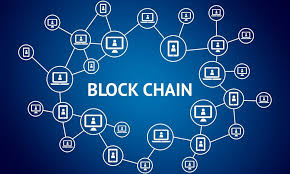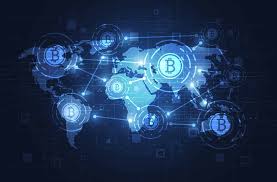
The Evolution of Decentralized Autonomous Organizations (DAOs)
9jatechbros
- 0
- 42
Decentralized Autonomous Organizations, or DAOs, represent a groundbreaking development in the way organizations operate and govern themselves. Rooted in blockchain technology, DAOs offer a new model for collective decision-making and resource management without traditional centralized control. This comprehensive guide explores the evolution of DAOs, their key features, benefits, challenges, and future potential.
What Are DAOs?
A DAO is an organization governed by smart contracts on a blockchain, rather than by traditional central authorities or hierarchies. These smart contracts are pre-programmed rules that automatically execute certain actions when specific conditions are met. DAOs are designed to be transparent, democratic, and efficient, allowing members to participate directly in the decision-making process.
Origins and Early Development
The Birth of DAOs
The concept of DAOs first gained attention with the launch of Bitcoin in 2009. Bitcoin itself is a form of a decentralized autonomous system, where no single entity controls the network, and decisions are made based on consensus among participants.
Ethereum and Smart Contracts
The real breakthrough for DAOs came with the introduction of Ethereum in 2015. Ethereum’s blockchain supports smart contracts, self-executing contracts with the terms directly written into code. These smart contracts provided the foundation for creating DAOs, enabling automated and decentralized governance structures.
The DAO
In 2016, a project known simply as “The DAO” was launched on the Ethereum blockchain. It was designed as a decentralized venture capital fund, where investors could vote on proposals to fund projects. Despite its initial success in raising over $150 million, The DAO faced a major security breach that resulted in a significant loss of funds. This incident highlighted the need for robust security measures and more mature governance models for DAOs.
Key Features of DAOs
Decentralization
DAOs operate without a central authority. Decisions are made collectively by the members through a voting process. This decentralization ensures that no single entity has control over the organization, promoting fairness and transparency.
Autonomy
DAOs are autonomous entities. Once the rules are set and the smart contracts are deployed, the organization can function independently without human intervention. This autonomy reduces the risk of human error and manipulation.
Transparency
All transactions and decisions made by a DAO are recorded on the blockchain and are publicly accessible. This transparency builds trust among members and ensures accountability.
Token-Based Governance
DAOs often use tokens to facilitate governance. Members hold tokens that represent their voting power. The more tokens a member holds, the more influence they have in the decision-making process. Tokens can also be used to incentivize participation and reward contributions.
Benefits of DAOs
Democratized Decision-Making
DAOs enable a more democratic decision-making process where every member has a voice. This inclusivity ensures that decisions reflect the collective will of the community rather than the interests of a few individuals.
Global Participation
Since DAOs operate on blockchain technology, they are accessible to anyone with an internet connection. This global reach allows diverse participation, bringing together individuals from different backgrounds and expertise.
Efficiency and Cost Savings
By automating processes through smart contracts, DAOs reduce the need for intermediaries and administrative overhead. This efficiency translates into cost savings and faster decision-making.
Innovation and Experimentation
DAOs provide a fertile ground for innovation. Their flexible and decentralized nature encourages experimentation with new governance models, business strategies, and technological advancements.
Challenges and Limitations
Security Vulnerabilities
The DAO hack of 2016 underscored the importance of security in smart contract development. Bugs and vulnerabilities in the code can lead to significant financial losses and undermine trust in the system.
Legal and Regulatory Uncertainty
The legal status of DAOs is still evolving. Traditional legal frameworks are not well-equipped to handle decentralized entities, leading to uncertainties regarding liability, taxation, and compliance.
Governance Challenges
While DAOs promote democratic decision-making, achieving consensus among a large and diverse group of participants can be challenging. Coordinating and executing decisions in a decentralized manner requires robust governance frameworks.
Scalability Issues
As DAOs grow in size and complexity, scalability becomes a concern. Handling a large number of transactions and participants efficiently without compromising security and performance is a technical challenge that needs to be addressed.
Evolution of DAOs
Improved Security Measures
Following the DAO hack, the blockchain community has made significant strides in improving the security of smart contracts. Rigorous code audits, formal verification methods, and bug bounty programs are now standard practices to enhance security.
Enhanced Governance Models
DAOs are experimenting with various governance models to address decision-making challenges. Some DAOs use quadratic voting, where the voting power of each token holder is proportional to the square root of their token holdings. This approach aims to balance influence among members and prevent dominance by large stakeholders.
Interoperability and Cross-Chain DAOs
The development of cross-chain technology allows DAOs to operate across multiple blockchain networks. Interoperability enhances the functionality and flexibility of DAOs, enabling them to leverage the unique features of different blockchains.
Layer 2 Solutions
Layer 2 solutions, such as sidechains and rollups, are being integrated into DAO infrastructures to address scalability issues. These solutions offload transactions from the main blockchain, improving speed and reducing costs.
Notable DAO Projects
MakerDAO
MakerDAO is one of the most successful and well-known DAOs. It operates the Maker Protocol, which allows users to create and manage the stablecoin DAI. DAI is pegged to the US dollar and is used in various DeFi (Decentralized Finance) applications. MakerDAO’s governance is token-based, with MKR token holders voting on protocol changes and updates.
Aragon
Aragon is a platform that provides the tools and infrastructure for creating and managing DAOs. It aims to empower people to form decentralized organizations and collaborate without geographical limitations. Aragon DAOs can be customized for various purposes, from project management to community governance.
Compound
Compound is a decentralized lending and borrowing platform. Its governance is managed by COMP token holders, who propose and vote on changes to the protocol. This decentralized governance model allows the community to influence the platform’s development and policies.
The Future of DAOs
Mainstream Adoption
As blockchain technology matures and regulatory frameworks evolve, DAOs are likely to see increased mainstream adoption. Traditional organizations may integrate DAO principles to enhance transparency, efficiency, and inclusivity.
Integration with Real-World Assets
Future DAOs could manage real-world assets, such as real estate, intellectual property, and financial instruments. Tokenizing these assets and managing them through DAOs can democratize access and improve liquidity.
Social Impact and Community Projects
DAOs have the potential to drive social impact initiatives and community projects. By decentralizing governance and funding, DAOs can empower communities to address local challenges and promote sustainable development.
Enhanced User Experience
Improving the user experience of DAO platforms is crucial for broader adoption. Simplifying the onboarding process, enhancing user interfaces, and providing educational resources can make DAOs more accessible to the general public.
Collaboration with Traditional Institutions
As DAOs evolve, collaboration with traditional institutions, such as governments and corporations, can create synergies and drive innovation. Hybrid models that combine the strengths of decentralized and centralized systems could emerge, offering new ways to manage resources and make decisions.
Conclusion
Decentralized Autonomous Organizations (DAOs) represent a significant evolution in organizational governance and decision-making. By leveraging blockchain technology and smart contracts, DAOs offer a transparent, democratic, and efficient alternative to traditional centralized structures. While challenges such as security vulnerabilities, legal uncertainties, and scalability issues remain, the ongoing evolution of DAOs holds great promise for the future.
As the technology matures and adoption grows, DAOs have the potential to revolutionize various sectors, from finance and technology to social impact and community governance. By addressing the current challenges and embracing innovation, DAOs can pave the way for a more inclusive, transparent, and efficient future.



